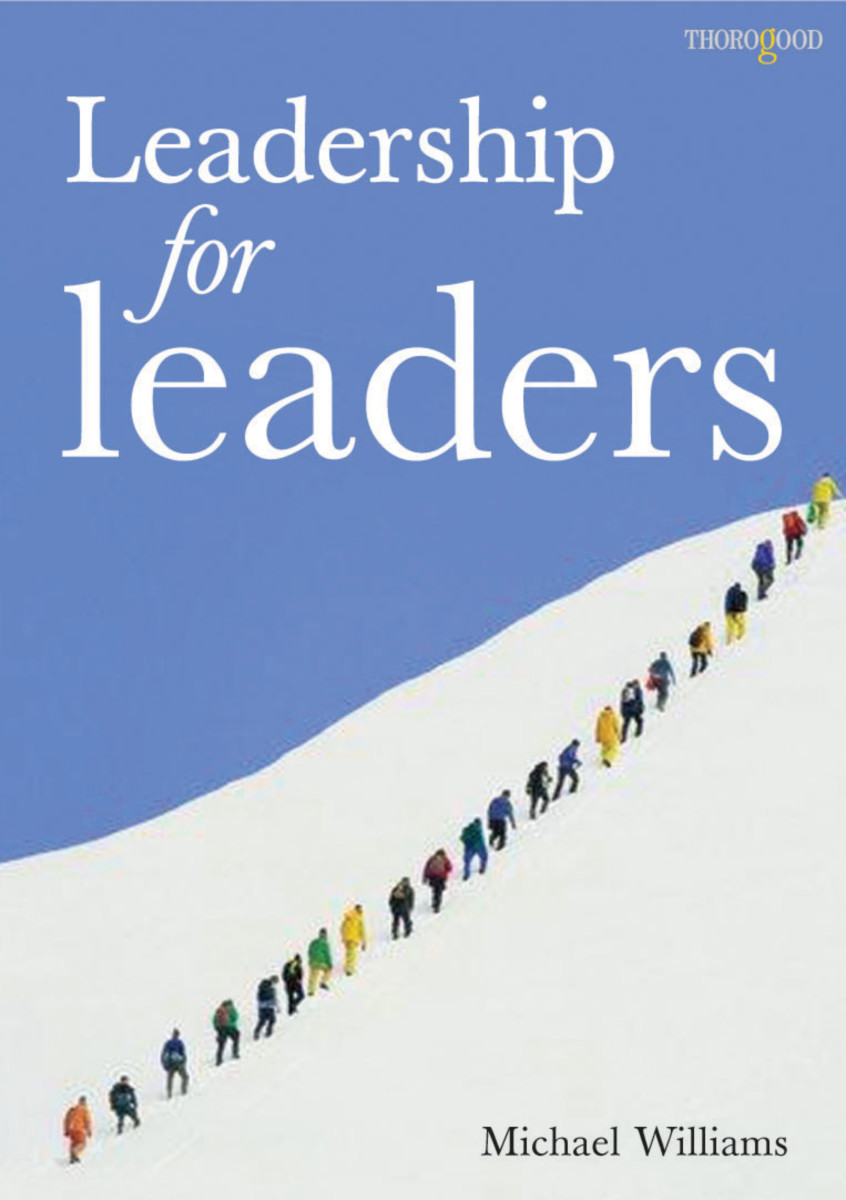BUSINESS BOOKS AND REPORTS
Leadership for Leaders
- Publisher
THO - Published
1st June 2005 - ISBN 9781854183507
- Language English
- Pages 224 pp.
- Size 6.25" x 9.25"
Based on extensive research, this book challenges accepted 'norms' and establishes the 7 key competencies required for successful leadership today
This challenging book is based on research carried out over seven years with over 2,500 senior managers in ten different companies, in USA and Europe. Michael Williams establishes and explains the 7 key competency clusters that matter most today:
* Goal orientation
* Integrity
* Close engagement with others
* "Helicopter" perception
* Resilient resourcefulness
* Personal "horsepower"
* Resonant communications
He also shows how much talent lies untapped in organisations and proposes methods of mobilising all this potential. He demonstrates how, for ultimate success, the key competencies need to be linked closely to:
* Personal consistency
* Discipline and integrity
* Intolerance of mediocrity
* A concern to build mutual trust
* Focused passion for the business
* Recognition of the importance of emotional intelligence
"Mike Williams has written an outstanding book on leadership. It is clear, readable and full of sound advice. Both those on the threshold of leadership and those someway down the road should read these pages, for they will not find a more inspiring guidebook to the challenges of modern leadership in print today."
Prof John Adair
"Leadership for Leaders is a very informed, thoughtful and practical guide for private and public sector leaders. It will help them to better appreciate both the theory and the practice of this immensely important and vast subject. It's clear that the book is a work of synthesis based on much experience and reflection. A very fine achievement."
Yury Boshyk, Chairman of Global Executive Learning and the annual Global Forum on Executive Development and Business Driven Action Learning.
"I found this book to be both an informative and enjoyable read and, in answer to the question you pose at the beginning 'Will it help to develop the leaders, who develop the people, who develop the business?', the answer is a firm 'yes'. I think from the 'practitioner's' perspective, the book maps a clear path through the myriad of theories and concepts which abound about leadership. I particularly found Chapter 2 to be very useful in this context. Where the book is very good is that it gives the practising CEO some food for thought, rather than dictating theory to them. The "Dimensions to Management and Leadership'" Model (fig10 p58 ) and the summary chart (pp108 - 109), listing the thirteen activities for leaders to explore as to how they can foster talent, are both excellent examples of the guiding thought process, familiar throughout the book.
Paul Winter, CEO, The Leadership Trust
Very enjoyable."
"I found this book to be both an informative and enjoyable read and, in answer to the question you pose at the beginning 'Will it help to develop the leaders, who develop the people, who develop the business?', the answer is a firm 'yes'. I think from the 'practitioner's' perspective, the book maps a clear path through the myriad of theories and concepts which abound about leadership. I particularly found Chapter 2 to be very useful in this context. Where the book is very good is that it gives the practising CEO some food for thought, rather than dictating theory to them. The "Dimensions to Management and Leadership'" Model (fig10 p58 ) and the summary chart (pp108 - 109), listing the thirteen activities for leaders to explore as to how they can foster talent, are both excellent examples of the guiding thought process, familiar throughout the book.
Paul Winter, CEO, The Leadership Trust
Very enjoyable."
Introduction
ONE Close-quarter leadership
Leading at close quarters
Emotional intelligence – the basis of close-quarter leadership
Leaders with high EQ and "Cutting Edge"
Chapter one references
TWO Leadership theories, role models – and common sense
1. Professor John Adair
2. Paul Hersey and Kenneth Blanchard
3. Noel Tichy
4. Jim Collins
Low-key "thinking" leadership
Experience and theory – a necessary synthesis
Chapter two references
THREE Leadership and the achievement ethic
The work of professor Tom Paterson – a treasure unearthed
1. Inward leader role
2. Outward leader role
3. Exemplar leader role
4. Eccentric leader role
5. Facilitator/follower
Leaders as "re-inventors"
Chapter three references
FOUR "Buy-in", not by-pass: the rules of engagement
The leader’s role in engaging people and securing "buy-in"
1. Change-leader strategy
2. Buy-in strategy
3. Knowledge and skill strategy
4. Team building strategy
5. Consolidation
6. Reward strategy
Chapter four references
FIVE Great leaders develop more great leaders
What do we mean by "talent"?
When leaders’ strengths become weaknesses
Leaders developing leaders
Leadership potential
Chapter five references
SIX Leading innovation – taking the organization forward
What inhibits or stimulates innovation
S-T-R-E-T-C-H objectives: The stuff of innovation
Imagination and creativity
Innovation: Risk – reward correlations
Chapter six references
SEVEN Leadership – a matter of mindset
"Horsepower, horsepower, horsepower"
Developing a new leadership mindset
Emotional intelligence: A cornerstone of the leadership mindset
Chapter seven references
EIGHT Making it happen – the leader’s job
The leadership arenas
Leaders as net-workers
Leading the way to tomorrow
Who have I learned – and continue to learn -- from, about being a leader?
Chapter eight references
Michael Williams
Michael Williams is an international management consultant with associate companies in Geneva and Copenhagen. He teaches at leading European Business Schools, including IMD, Lausanne and The Theseus at Nice. Mike draws on over twenty years managerial experience in the printing, iron and steel, engineering and automotive industries. He is an author of seven books on organizational behavior, leadership and management, and is a Member of The British Psychological Society and The Institute of Directors.


